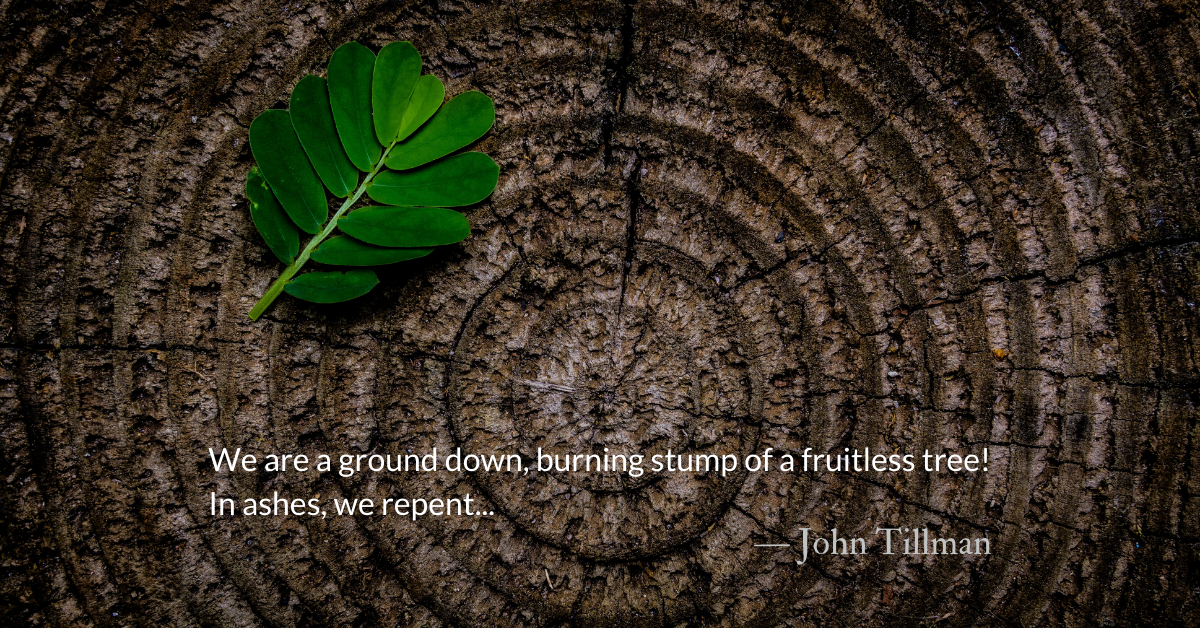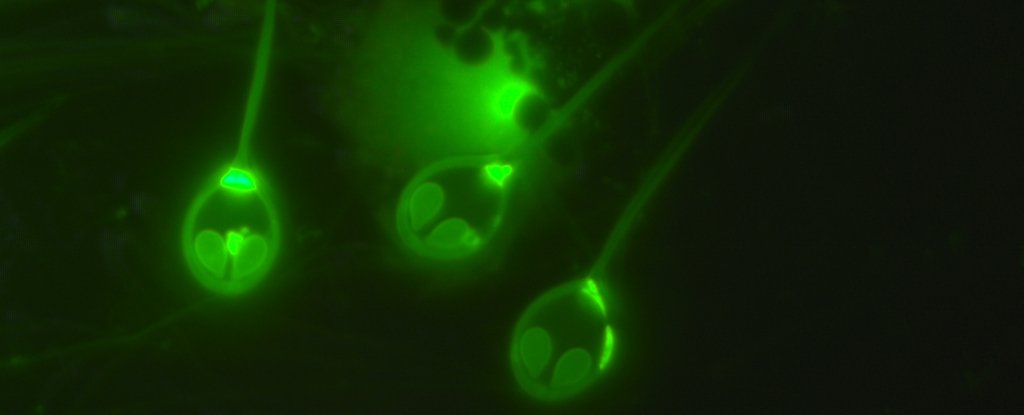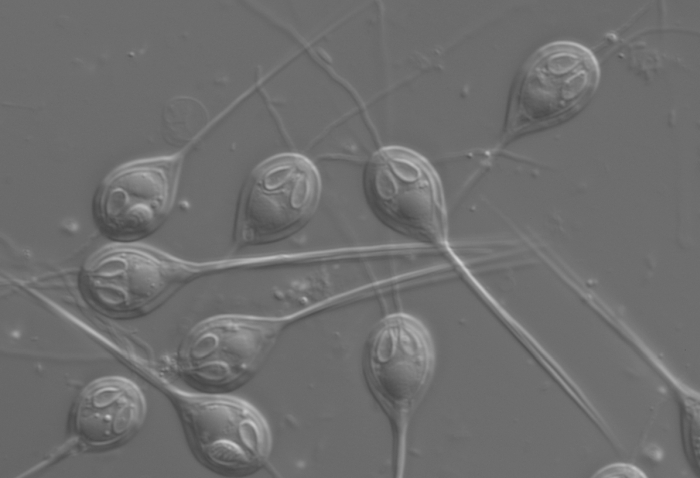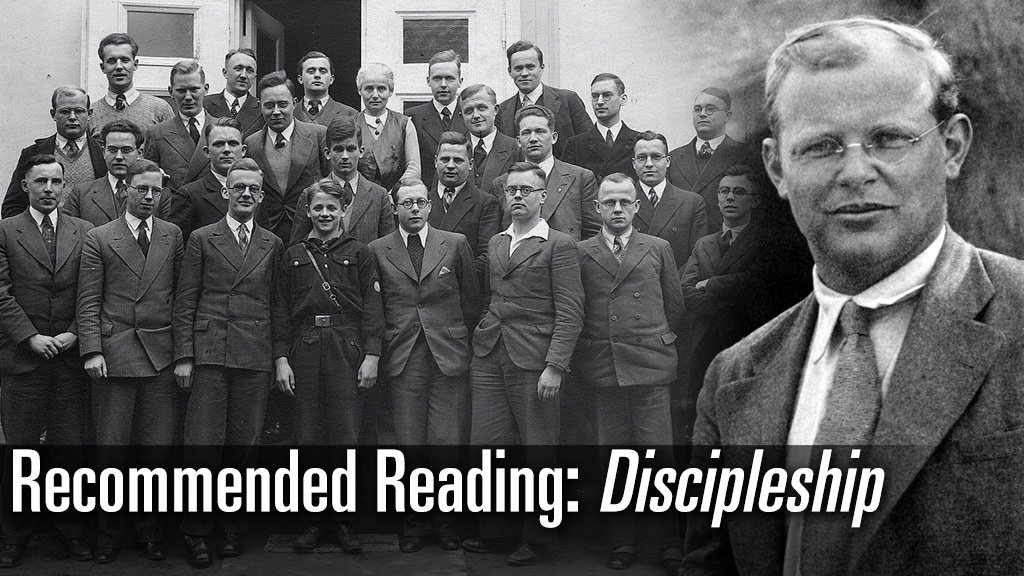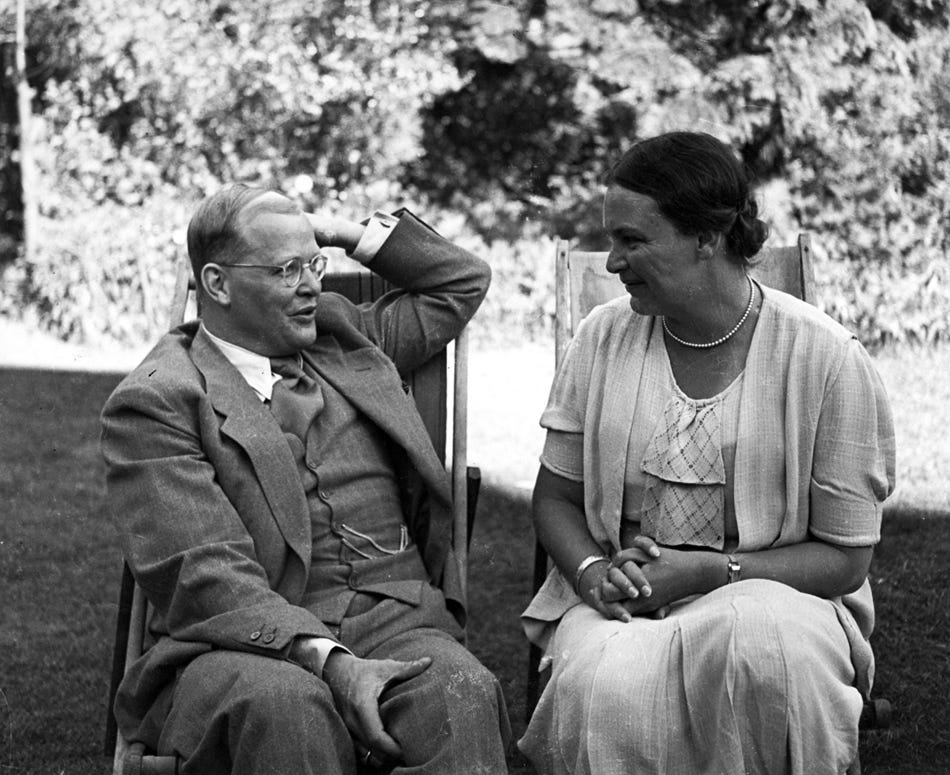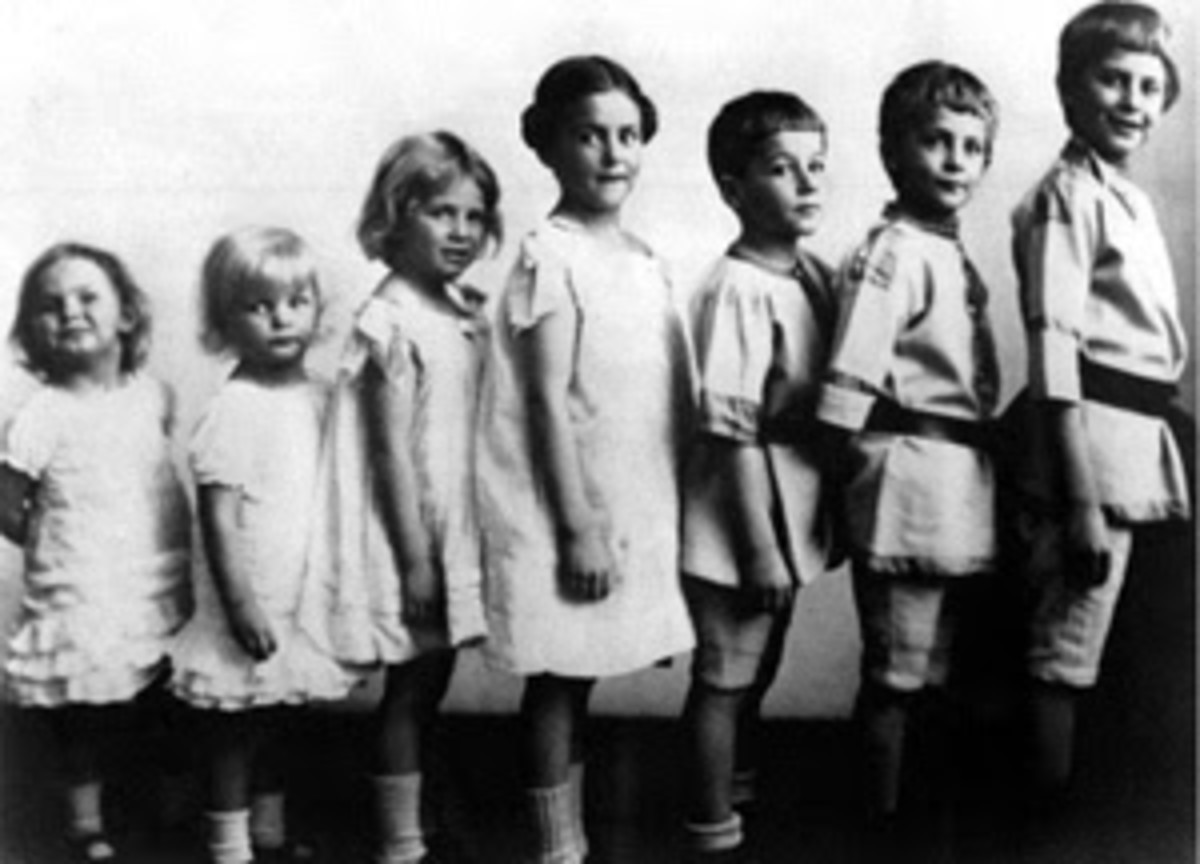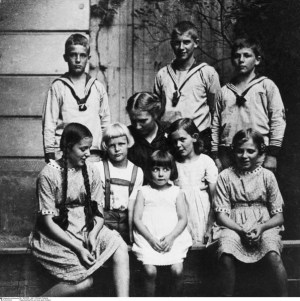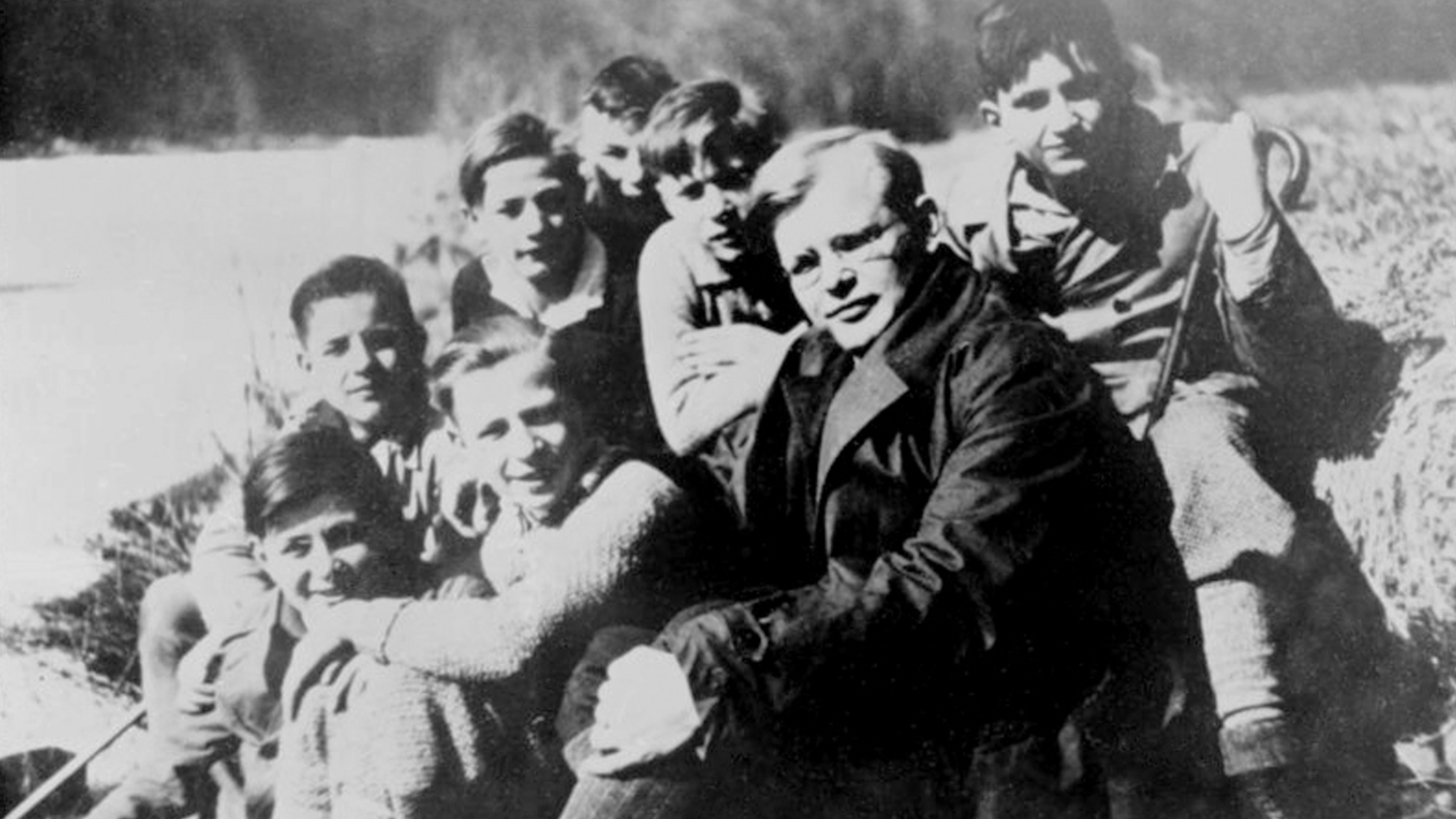Supporting Faith,
Doubt and Uncertainty
by R.E. Slater
June 1, 2020
About nine years ago (2010-11) I went through a deep despair in my Christian faith. I knew going into it I would need to let everything go in order to see more clearly beyond my faith background and experiences. Little did I imagine how deep this would become or how titanic the struggle would be in the lost wilderness of my experience.
During that time I had no one to pray with me. No one who could guide me or talk with me about this chasm which had ripped open my spirit. I was utterly, utterly, alone. What made it worse was my sense that God was not there. I felt this intensely and it sadden me.
But at the same time God's Spirit was me. To this day I can't explain the difference only that God seemed very closed off from me; His heavens like brass to my prayers. And yet, in a paradoxical twist to my unwanted dive into the underworld I felt the presence of His Spirit leading and guiding.
I can't explain it. I can only say that I felt no need to leave this unearthly wilderness. My spirit told me to stay in it. Learn from it. To take my time to explore, ask questions, many questions, and to walk as much as this spiritual darkness as I could. Only when God said to leave would I leave. Not before.
And so, for nearly a year, I lived through very dark and spiritually difficult times. What I began to learn is that my faith foundation was solid but that it's particulars needed to be re-weighed, re-envisioned, and brought into the contemporary world of today. It required letting go of what I thought were most central to my faith and placing into that void a new center to help guide me through everyone of God's Spirit-ordained tasks lying ahead of me.
It was a time when I could reimagine everything I had known at a very mature age (55y) filled with many, many ministries, community services, church lay ministries, working, raising a family, learning to partner well with my spouse, and a host of other activities, central around them was my hunger to read and know what I hadn't learned in my undergraduate and graduate years.
The Lord had always challenged me to strive in His Word, to express it well in everyday living, to learn from loss (there have been many), from relationships (many again) and community activity of sundry sorts. Looking back, the Lord was preparing me to loss my faith that it might be regained again a hundredfold.
So I'm glad I allowed God to lead me, against my wishes, and quite unexpectantly, into His wilderness. It was not mine alone, but a land that He had graced and walked Himself. I saw His footsteps everywhere. His insights and teachings upon the very ground I tread. I was following after my Lord, being led by His Spirit, unto a new calling I did not want.
The burden which had grown into me was that of anger. Anger that all my preacher contacts and Christian friends were unwilling to enter the lands of unfaith. Their absence upon its desert spaces only had room for one. I thought these to be far more capable and prepared them myself. They had the tools (not that I didn't) and the personal vocations to be able to do this. And yet they entered not. It was left for me alone.
As such, I was angry that it had to be my little voice to speak up for the gospel of the Lord in a way which was not clear at all. Not until I had entered into these Spirit-filled spaces and then be lifted out of them as quickly by the Lord as I had been led into them. I cannot explain. But after that I knew what had to be undone. What had to be unsaid. And what I must do when deconstructing my fundamental and evangelical faith for a more relevant faith which might reveal the Lord more clearly than all my biblical knowledge I had obtained a mere 11 months earlier.
I latter learned what I went through is commonly termed a process of uncertainty and doubt. Its the bogey man term of the Christian world. It is the place where fallen sinners go into a personal hell of agnosticism or atheism never be delivered out of again. Though I knew of this things, and how people may look from the outside casting aspersions upon the fallen, my own experience only taught me to rejoice along the spiritually hard paths. And this I did as I struggled with the Lord for as long as He wanted me there.
When I think of people like Jonathan Steingard, the frontman for the Christian band, Hawk Nelson, and his recent admission to leaving the Christian faith, I feel only sorrow. But not in the way you would think. No, sorrow as I would for anyone in public ministry with high expectations placed upon them. that they did not have the personal space as I had to collapse into darkness with no one's care or worry.
What I had that so many in ministry do not is a personal place to go to see the Lord afresh. A hidden cleft in the rock; a lonely trail through burning brushlands; a garden undisrupted and without foes and enemies seeking my soul. When our brothers and sisters lose faith it is essential that they do if they are to find again in whatever way the Lord is leading them.
We cannot know how deliverance will come, if ever it does, but we must love, guide, and pray with our wounded warriors who may never really have had a time in their lives to ask the hard questions about their faith. My own testimony says that it often comes only after a long time of service in ministry, in study and prayer. Had it come sooner when I was younger I may not have had the ability to course-correct under the Spirit's guidance.
Jonathan Steingard is a young man, a young faith, and a faith disciple. I, myself, chose to allow him his time of wilderness walking. What will become of that walk we do not know. But I pray for God's goodness and blessing along his forbidden journey that in what ever way becomes of him the Lord continues to be His guide and stay. Amen? Yeah, verily, Amen.
R.E. Slater
June 1, 2020
* * * * * * * * * * * * *
Jon Steingard (Hawk Nelson) REJECTS Christianity
Jonathan Steingard, Christian singer,
reveals he no longer believes in God
by Lisa Respers France, CNN
May 27, 2020
(CNN) Jonathan Steingard, frontman for the Christian rock band Hawk Nelson, has gone public with some personal news. In a recent lengthy post on his Instagram account, the singer shared that he no longer believes in God.
Jonathan Steingard, singer for Christian rock band Hawk Nelson, says he no longer believes in God.
"I've been terrified to post this for a while - but it feels like it's time for me to be honest," he wrote in the caption to his multi-image post of his statement. "I hope this is not the end of the conversation, but the beginning."
In his note Steingard explained how he came to his latest view:
"After growing up in a Christian home, being a pastor's kid, playing and singing in a Christian band, and having the word 'Christian' in front of most of the things in my life - I am now finding that I no longer believe in God," he wrote in his statement.
"The last few words of that sentence were hard to write. I still find myself wanting to soften that statement by wording it differently or less specifically - but it wouldn't be as true."
According to Steingard, "The process of getting to that sentence has been several years in the making."
He wrote that he started by privately processing his doubts and then sharing them in conversation with some close friends.
To his surprise, Steingard said, he found that his unbelief was shared by others who also had grown up in church, but who -- like him -- feared "losing everything if they're open about it."
Steingard said he felt like the timing was right to share given that his band is currently sidelined because of the pandemic.
His fellow band members supported the singer in a statement to USA Today, saying that Hawk Nelson's mission is to "inspire and encourage all people with the truth that God is FOR them and not against them."
"God is still FOR Jon & he still matters," the statement read. "Why? Because that truth doesn't change just because we question it."
Hawk Nelson - Drops In the Ocean (Lyric Video)
Jon Steingard of Hawk Nelson Plays the Crying Game
[Jon Steingard of Hawk Nelson is a new father to his son,
"little G" Gray Steingard. Will Jon know the differences
between his son's crying sounds?]
* * * * * * * * * * * * *
 |
| Hawk Nelson frontman Jonathan Steingard |
Jon Steingard: From His Bandmates:
Daniel, Micah, David
One of our best friends, one with whom we have walked, worked and lived alongside for 20 + years revealed some of his innermost feelings on his faith journey this past week.
Our mission as Hawk Nelson has always been to inspire and encourage all people with the truth that God is FOR them and not against them. In that message’s most simple and purest form, that THEY matter.
So now we turn that truth towards one of our own. That God is still FOR Jon & he still matters. Why? Because that truth doesn’t change just because we question it.
How we treat one another when they are at a different stage in their journey based on their life experiences is part of a bigger conversation. We are called to love one another unconditionally, as God loves us. We should also encourage and challenge one another in our Faith, seeking truth.
Are we the authors of our own salvation and eternity? Has God provided a way to salvation for us through Jesus? These are the questions that we each must ask and explore.
In the Bible (Romans 8:38) Paul writes, “… I am convinced that nothing can separate us from God’s love… neither our fears for today nor our worries about tomorrow - not even the powers of hell can separate us from God’s love. No power in the sky above or in the earth below - indeed, nothing in all creation will ever be able to separate us from the love of God that is revealed in Christ Jesus our Lord.” The same Lord is Lord of all, and gives richly to all who call on Him, for, “Everyone who calls on the name of the Lord will be saved.” Ever thankful and grateful for how God has used this band, the music and the relationships and how He continues to do so.
Daniel, Micah, David
* * * * * * * * * * * * *
My Response to Evangelicalism's
Reaction
Reaction
by R.E. Slater
May 27, 2020
Jonathan Steingard's expression of unbelief is an instance of honesty meeting doubt and uncertainty. Though it will lead him to the sidelines of institutionalized Christiandom it may also lead him to a well-needed space for faith introspection and revival which many other public Christian faith figures have taken in recovering their faith from the untruths taught by the church, or the unChristlike actions seen within the faith.
From such courage God can do great things in hearts seeking His love over other Christian beliefs disclaiming God's love in favor of practices, attitudes, and errant doctrines proclaiming God's searing judgment. I find in Jonathan's act an act of hopefulness to such a one brave enough to question his or her's faith and the teachings he or she have been raised under.
I took such a journey not too many years back myself only to discover God in uplifted and broader ways beyond my "conservative" biases. If we don't ask the right questions or challenge who we are then our faith cannot be lifted out of its misdirections. For many, its simply finding a more real Jesus culture away from the Christian secularism that too often surrounds the evangelical church. They may call it unbelief, but its more an unbelief in a Christian culture which has produced trumpian doctrines of lies, gracelessness, slander, and oppression.
Embracing empire culture is certain death to the church and its mission. I cannot fault Christian celebs who see this so starkly as to walk away from its chaining shackles. There is a better way. That way is Jesus. And those Christians and churches who chose Jesus must let go of the graceless teachings which bind them so that they may see God afresh again.
This then is the Spirit work of doubt and uncertainty. A process where the Master Potter remolds his pottery in shapes of freedom, declaration, and missional zeal for the Gospel of Christ.
R.E. Slater
May 27, 2020
Addendum
by Grant Alford
May 28, 2020
I completely agree with your assessment, and it seems in such contradiction to another posting of the same news item and the "Christian" response that seems to have all the pat answers and 'alarm'. My observation there was that the Evangelicals seem to write these people off as some kind of "Demas" who has responded to the siren voices of "the world, the flesh and the devil" so they can pursue some kind of hedonism or immorality or wealth.
My sympathies are with these who honestly and intellectually can no longer accept the "God" that they have been indoctrinated into believing.
The Evangelicals have sold a false bill of sale.
They offer a Four Spiritual Laws easy-believism, or a prosperity gospel.
They present an "Omnipotent" God who could DO ANYTHING and these ones who are "quitting the faith" wonder why, if God can do anything, has He not stopped the maniacs and dictators and perverts and sickness.
They talk about some kind of personal relationship in terms that just never materialize: "I come to the garden alone, while the dew is still on the roses, and he walks with me and he talks with me and he tells me I am his own".
They speak as though they just had a voice from heaven and a warm hug and everything is hunky dory.
These faiths and churches are the ones who are bearing false witness; who sit on their blessed assurance having never faced any doubts.
I liken such faiths to the "cute" 6 or 7 year old child star (of the faith) who sings Amazing Grace, "How sweet the sound that saved a WRETCH like me." To me these faith expressions are no different than well trained parrots who mouth words which have no meaning.
Or, they have "received Jesus into their hearts" and according to their various theologies they do so because they are the elect or children of the covenant, and if they question or quit their covenanted faith it must be because they never TRULY believed in the first place. [Circles in circles in circles of faith logicisms, as they say.]
I, too, marvel that the alarmists seem to think that the same honest intellectual questions are likely to end now that they have "walked away from (that) faith". I expect that it is these sincere ones who will pursue the options and may well be the leaders in a movement that will proclaim JESUS as the Saviour rather than the Trumpian churches, or some MAGA madness, seeking to establish some earthly kingdom (sic, Empire Christianity, or Christian Reconstructivism).
* * * * * * * * * * * * *
 |
| An image of the proposed Temple for Atheists in the City of London, as called for by Alain de Botton. | Photograph: Thomas Greenall & Jordan Hodgson |
Alain de Botton's Atheist Temple is a
Nice Idea, but a Defunct One
by John Gray
February 2, 2012
Alain de Botton has reinvigorated the conversation on religion. His new book moves away from the tedious debates of recent years to a more reflective consideration of the role of religion in sustaining values many people share.
Religion as a human phenomenon is too vast, pervasive and complicated to be discussed in simple binary terms of belief and unbelief. The evangelical atheists of the past few years may not be notable for sceptical doubt, but religious practitioners are often quite uncertain in their beliefs. De Botton is writing for the sceptics, whether they belong in any religion or not. It's a welcome shift of focus.
Atheists who aren't bigoted enemies of religion will agree that it has made many positive contributions. They are less likely to accept that they should have a religion of their own – complete with a temple in the City – as de Botton goes on to propose. Establishing atheist places of worship isn't exactly a new idea. As de Botton himself notes, an ambitious programme of atheist church-building was part of the Religion of Humanity, invented by the 19th-century French thinker Auguste Comte.
An obsessive, and at times unbalanced, personality, Comte – a fervent believer in phrenology, like many atheists at the time – developed an elaborate daily ritual that included tapping the forehead at the points where science had supposedly located the impulses of progress, altruism and order. He also created a "virgin mother of humanity", based on a married woman whom he had fallen in love with. When she died, he appointed her grave a place of pilgrimage.
Such eccentricities were not destined to last, but a number of atheist temples were established – not only in Paris, Comte's base, but in Rio de Janeiro, New York, Liverpool and London, where a church of humanity opened on Lamb's Conduit Street in 1870. In line with Comte's creed, these were temples where disciples could worship the new supreme being – humanity. As far as I know, none of the buildings is used for religious purposes today, though the Brazilian church seems to have been active until some time late in the 20th century.
When he proposes building a temple for unbelievers, de Botton is reinventing a wheel that never really turned. The fad for atheist temples lasted for perhaps 60 years, while places of worship dedicated to something bigger than humanity have been around for many millennia. There is a nice irony here. For all his loony notions, Comte was more intelligent than most of the atheists who came after him. He saw clearly that religion is an enduring human need that cannot be denied. Yet despite the formative influence it had on writers and philosophers such as George Eliot and John Stuart Mill, Comte's religion of humanity disappeared leaving hardly a trace – just a handful of sites, whose history as places of worship practically nobody remembers.
Even if Comte's church was ephemeral, he was right in predicting that religion would not die out. The world is awash with formless religiosity, much of it flowing through non-traditional channels. During most of the last century, politics was the principal vehicle for religion. Communism and the cult of the free market are examples of large, flimsy ideas being turned into articles of faith.
Today, faith is more often channelled through science. Not only the pseudo-science of crop circle enthusiasts and UFO cultists, but genuine advances in science and technology are being used to promote hopes and dreams that are quintessentially religious. People who believe that the human mind can be uploaded into virtual space and so be immune to death are recycling the fantasies of 19th-century spiritualists, who also argued that their beliefs were based on science.
Comte wanted his new religion to be based on science, so the temples of humanity pointed only as far as science could reach. That is why his new church failed. The very idea of a science-based religion is an absurdity. The value of religion is that it points beyond anything that can be known by the methods of science, showing us that a mystery would remain even if everything could be finally explained. The heart of religion isn't belief, but something more like what Keats described as negative capability: "being in uncertainties, mysteries, doubts, without any irritable reaching after fact and reason".
Rather than trying to invent another religion surrogate, open-minded atheists should appreciate the genuine religions that exist already. London is full of sites – churches, synagogues, mosques and other places of worship – that are evocative of something beyond the human world. Better spend the money that is being raised for the new temple on religious buildings that are in disrepair than waste it on a monument to a defunct version of unbelief.








